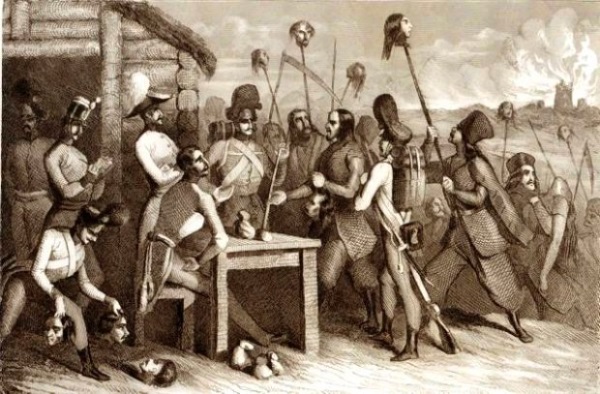In February and March 1846, violent peasant riots took place in Western Małopolska region. The attacks on the manors of the nobility and the massacres of the landed gentry families passed into history under the name of the Galician Rabacja. According to historians, they were planned by the Austrian authorities. For the landed gentry, those events were very surprising and shocking, and resulted in a change in the attitudes of part of the landed gentry towards the Austrian invaders and an increase in antagonism between social strata in Galicia.
The first riots took place on 18 and 19 February in the vicinity of Tarnów, Stary Sącz, Jasło, Bochnia and Wieliczka. Within a few days, around 500 manors were destroyed and between 1,200 and 3,000 people were killed, according to various estimates. For years, the Austrian invaders had been encouraging anti-nobility sentiment among the peasants. Jakub Szela (1787-1860), the most prominent of the leaders of the peasant rabble, had collaborated with Austrian officials since at least 1845, and after the massacre was settled in Bukovina, where he was rewarded with a large farm, becoming one of the wealthiest peasants in the village.
The Galician massacre was typically anti-noble in character. According to Stefan Kieniewicz’s findings, the peasants did not murder any Jews or Austrian officials. Those facts prove that the Austrian authorities wanted to use the robbery to prevent a nationwide uprising of Poles that was being prepared in Krakow.
Famous people, whose life stories were most affected by the events of February and March 1846, include the poet, writer and “father of Polish geography” Wincenty Pol (1807-1872) and the politician, statesman Aleksander Wielopolski (1803-1877). Pol was severely beaten twice during the rabble, had to flee from his manor house, which was set on fire. He lost all his previous research and written works in the blaze. This resulted in a change from his democratic views to conservative ones. On the other hand, the Margrave Wielopolski, influenced by the rabble, issued the so-called “Letter of a Polish Nobleman to the Prince Metternich”, in which he stated that conducting internal politics consisting in stirring up some subjects against others was not in keeping with the dignity of a monarch. As a result, Wielopolski decided to start Russian service, which had major consequences for Polish history.
The Rabacja was an event long commemorated in the landed gentry circles and the intelligentsia originating from the nobility. Among others, Stanisław Wyspiański refers to the events of 1846 in “The Wedding” (1901).





